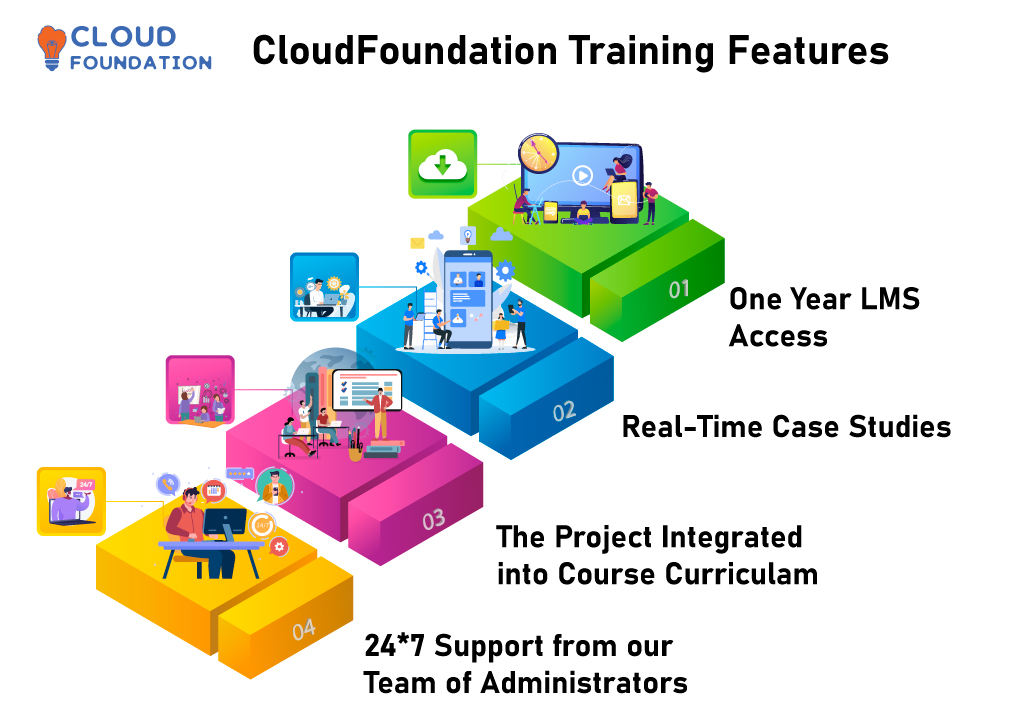CCISO Training (Certified Chief Information Security Officer)
⏰24 hours | ▶️ 24 Videos | 📣 9152 Participants | 🎓 4901 Reviews | 4.8 ⭐⭐⭐⭐⭐
Choose a Plan that Works for You
Self Paced
- Advanced sessions
- Interview Q&A
- Free study Materials
- Premium Technical support
Instructor Led Live Training
- Live Instructor
- Advanced sessions
- Interview Q&A
- Premium Technical Support
Corporate Training
- Live Instructor
- Advanced sessions
- Interview Q&A
- Premium Technical Support
Upcoming Batches PST
Weekday
| Jan 13(1 HR A DAY) |
| 07:00 PM PST |
| Enroll Now → |
Weekday
| Jan 27(1 HR A DAY) |
| 07:00 AM PST |
| Enroll Now → |
Weekend
| Jan 24(1 HR A DAY) |
| 07:00 PM PST |
| Enroll Now → |
Upcoming Batches IST
Weekday
| Jan 14(1 HR A DAY) |
| 07:30 AM IST |
| Enroll Now → |
Weekday
| Jan 27(1 HR A DAY) |
| 07:30 PM IST |
| Enroll Now → |
Weekend
| Jan 25(1 HR A DAY) |
| 07:30 AM IST |
| Enroll Now → |
Course Description
CCISO Training is one of the highest-level executive information security in every organization stream. Many more fields have opted and used this CCISO as a great support and Certification establishment through our experts’ learning skills.
Get Developed and implement an information security management plan that aligns with the business organizations.
Get a technology objectives output by Course preparation with our online Classes tutorial in CloudFoundation.
Start and Develop your current security IS program information in Professional with critical keys development.
Now you can be more efficient to grab great Job opportunities in the present across any organization and even can gain CCISO certification.

Course Content
1.Governance
Define, implement, manage and maintain an information security governance program.
Integrate information security governance framework
Manage information security.
Establish an information security governance monitoring structure.
Know information security standards, processes, directives, policies, legislation, and legal problems.
Understand business information security compliance.
Assess the organization’s external laws, rules, standards, and best practises.
Familiarise yourself with standards like ISO 27 and FIPS.
Manage computer operations by understanding federal and organisation-specific publications.
Compliance-check enterprise risk factors.
Reduce regulatory risk by synchronising information security strategy, plans, regulations, and practises.
Understand regulatory information security organisations.
Know information security trends and developments.
Compliance programme controls.
Know information security compliance.
Report compliance programmes.
Understand compliance audits and certification.
Follow organizational ethics.
Management Controls and Auditing Management
Determine the company’s goals and risk tolerance.
Test information systems controls before adoption to guarantee effectiveness and efficiency.
Determine the resources needed to develop and maintain information systems controls.
Supervise the information systems control process.
Metrics and key performance indicators.
Develop and test information security mechanisms.
Develop and execute strategies to rectify flaws and assess issue management techniques.
Automate information system control using tools and techniques.
Learn IT audit standards.
Assess IT systems and applications for a risk-based IT audit approach.
Conduct the audit process according to set standards
Evaluate audit reports based on relevance, correctness, and viewpoint.
Assess inadequate or non-existent control techniques.
Document IT audits and share findings with stakeholders.
Make sure the audit findings improvements are implemented quickly.
2.Management Projects and Operations
Organizationally align information systems project scope statements.
Identify and estimate information systems programme activities, then schedule and staff them.
Estimate and control project expenditures and manage the information systems programme budget.
Find, negotiate, buy, and manage IT programme design and execution resources.
To assure performance and responsibility, assign explicit information security job duties and offer continuous training.
Supervise information security staff and coordinate information systems team efforts with other security professionals.
Address people and teamwork difficulties within schedule, cost, and quality constraints.
3.Find, negotiate, and communicate with vendors
Review potential solutions with suppliers and stakeholders to discover incompatibilities, problems, and concerns.
Project management should satisfy company needs cost-effectively and minimise risks.
To optimise system performance, aim to regularly assess information systems project efficacy.
Communicate progress and performance to stakeholders.
4.Information Security Core Competence
Establish obligatory and discretionary access control criteria, understand implementation factors, and build an access control strategy.
Develop and administer a need-to-know-based access control scheme.
Identify different access control systems.
5.Social Engineering, Phishing Attacks, Identity Theft
Study social engineering ideas and their function in insider assaults and build countermeasures.
Anti-identity theft technique.
Phishing defense.
6.Physical Security
Find physical security regulations.
Locate physical security resources.
Develop, create, and maintain a comprehensive physical security strategy to protect the company.
Align human security goals with corporate security goals.
Plan and oversee physical security audits and updates.
Assess physical security.
7.Risk Management
Understand risk minimization, treatment, and acceptable risk.
Resource needs for risk management strategy.
Develop a systematic risk assessment strategy and IT security risk management programme.
Lead risk management teams.
Link incident response to external and internal groups.
Measure risk and incident management.
IT infrastructure residual risk.
Evaluate security risks and update security measures.
Update risk management policies and processes to meet corporate goals.
Use portfolio and security data to evaluate the investment planning process’s security measures.
8.Disaster Recovery And Business Continuity Planning
Plan, execute, and monitor business continuity strategies for disruptive occurrences.
Explain business continuity, business recovery, contingency planning, and disaster recovery.
Assess business continuity stakeholders’ capabilities.
Define and prioritise vital business processes.
Risk-management planning, operations, and programmes.
Design documentation for operational continuity.
Test and update the operations continuity programme.
Understanding Integrating needs into operations continuity.
Establish backup and recovery options and disaster-ready standard operating practises.
9.Firewall, Ids/Ips And Network Defense Systems
Organizational information security
Create a firewall monitoring application
Perimeter defences
Evaluate network security architecture
Learn network segmentation.
Manage dmzs, vpn and telecommunication technologies.
Identify network vulnerabilities and explore network security controls
Troubleshoot hardware and software issues.
10.Wireless Security
Secure wireless networks and find weaknesses.
Identify virus, trojan, and malware origins and threats
Anti-virus systems.
Anti-virus, trojan, and malware procedure.
11.Secure Coding Best Practices And Securing Web Applications
Secure coding standards.
Learn system-engineering methods.
Use secure programme development tools.
Install and operate IT systems
Locate online application vulnerabilities, threats, and security tools.
12.Hardening Os
Detect and fortify OS vulnerabilities and assaults.
Understanding Configuration management, patch, and system logs.
13.Encryption Technologies
Encryption&decryption,
Digital certificates,
public key infrastructure, and
Cryptography vs Steganography.
Identify cryptosystem parts.
Plan data encryption.
14.Vulnerability Assessment & Penetration Testing
For corporate security, create a penetration testing programme using penetration testing methodology.
Find vulnerabilities and legalities in information systems.
Pre & Post testing procedures
Plan pen test reporting and technical vulnerability repair.
Manage risk.
15.Computer Forensics & Incident Response
Plan to detect and report security violations.
Follow security incident reporting and system termination protocols.
Assess potential security violations
Address reported ia issues.
Provide standards to assess whether a security event is a legal infraction.
Locate system data that changes.
Understand various digital media devices.
Handling corporate digital forensics&managing forensic investigators.
Design investigation processes
Learn how to collect, store, and process digital evidence.
Design Anti-forensic techniques.
16.Strategic Planning & Finance
Strategic Planning
Plan, construct, and manage corporate information security architecture.
Use external and internal analyses to match information security with corporate goals.
To ensure organisation goals are understood, identify and consult key stakeholders.
Develop a forward-thinking, innovative, and original information security programme strategic plan.
Establish KPIs and monitor efficacy continuously.
Evaluate and adapt investments to meet strategic goals.
Track progress and accountability.
17.Finance
Develop the IT department’s operating budget.
Get and manage information security strategy resources.
Information securityprogrammes
Manage information security project costs
Identify Financial measures for stakeholders.
EISA and business security goals
Understand the acquisition life cycle
Learn about information system procurement methodologies
Understand procurement terminology
Coordinate IT security purchases with stakeholders
Ensure the inclusion of risk-based it security requirements
Plan vendor selection and management policy.
Establish contract administration procedures.
Measure and report on major procurement targets
Know the basic security standards.
FAQ’s
❓ Do you offer any discount/offer?
✅ Yes, offers keep changing from time to time. You can chat with us or call our training coordinator for more details.
❓ Is there any demo video which I can watch before enrolling to the course?
✅ Yes, we have provided a Demo video section on each course page so that you can get a glimpse into the course you want to enroll.
❓ How soon after signing up would I get access to the learning content?
✅ Yes, we will provide access to all the learning materials after the complete payment for the course.
Related Blogs
Drop US a Query
Suggested Courses




MuleSoft Training
⭐⭐⭐⭐⭐
😃 221 Learners




Pega Training
⭐⭐⭐⭐⭐
😃 391 Learners




Rpa Training
⭐⭐⭐⭐⭐
😃 106 Learners




WorkDay Training
⭐⭐⭐⭐⭐
😃 158 Learners
A few of our students
















Contact Us